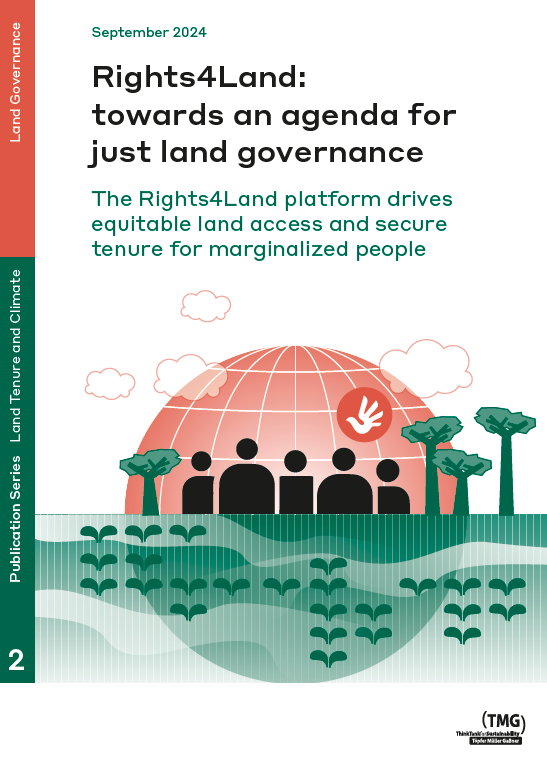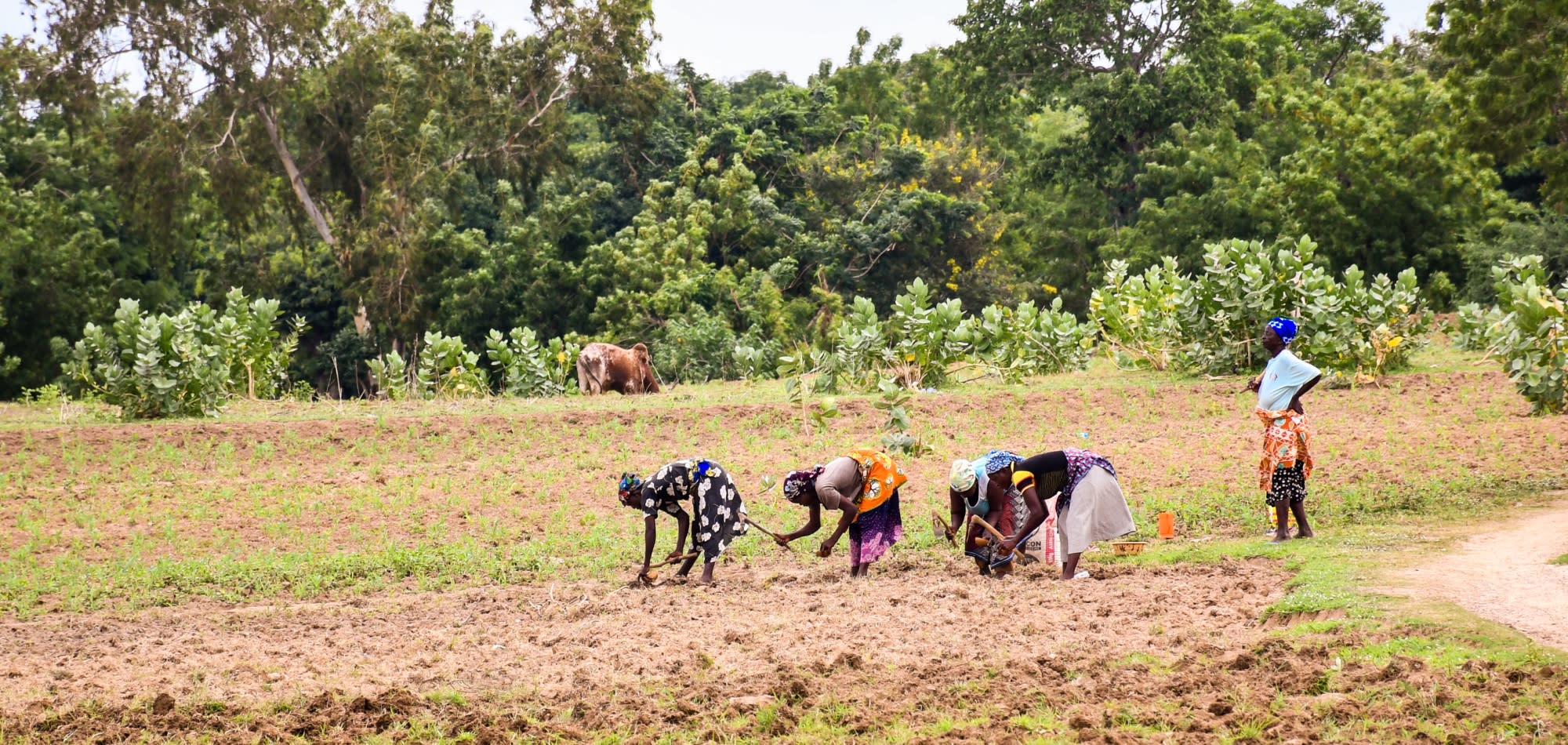
Land Tenure and Climate Publication Series
Securing tenure rights for a climate-just future
TMG Research is committed to fostering a comprehensive land tenure and climate agenda based on a rights-based, just and equitable approach to climate action. To achieve this, we must maintain robust environmental and social safeguards. We must ensure that the voices of the most vulnerable among us, including women, youth and Indigenous Peoples, are not only heard but also included in our strategies for a sustainable future.
As climate challenges intensify, the intersection of land tenure and climate resilience has never been more critical. Through our publication series, we will explore diverse perspectives, outline policy discussions, and discuss solutions addressing these pressing issues. Our articles, some of which are already available, delve into the complexities of land rights and their impact on climate adaptation and mitigation.
Stay tuned throughout 2024 as we continue to publish insights that aim to empower communities and drive meaningful climate action.
Land rights are indispensable to tackling the climate crisis and inequality.
Secure land tenure: the key to climate resilience? Strengthening land rights in climate change adaptation and mitigation policies
Secure land tenure is one of the keys to unlocking climate resilience. It ensures that marginalized communities, including women farmers and Indigenous Peoples, are empowered to actively contribute to climate adaptation, mitigation, and recovery. As we approach COP29 (UNFCCC), COP16 (UNCCD), and COP16 (CBD), the integration of land rights into global climate policies is essential to achieving equitable, sustainable solutions through carbon markets, climateinduced mobility, and loss and damage frameworks.
Download the policy brief here.
Land rights must be at the heart of climate action if we are to build a just and resilient future.
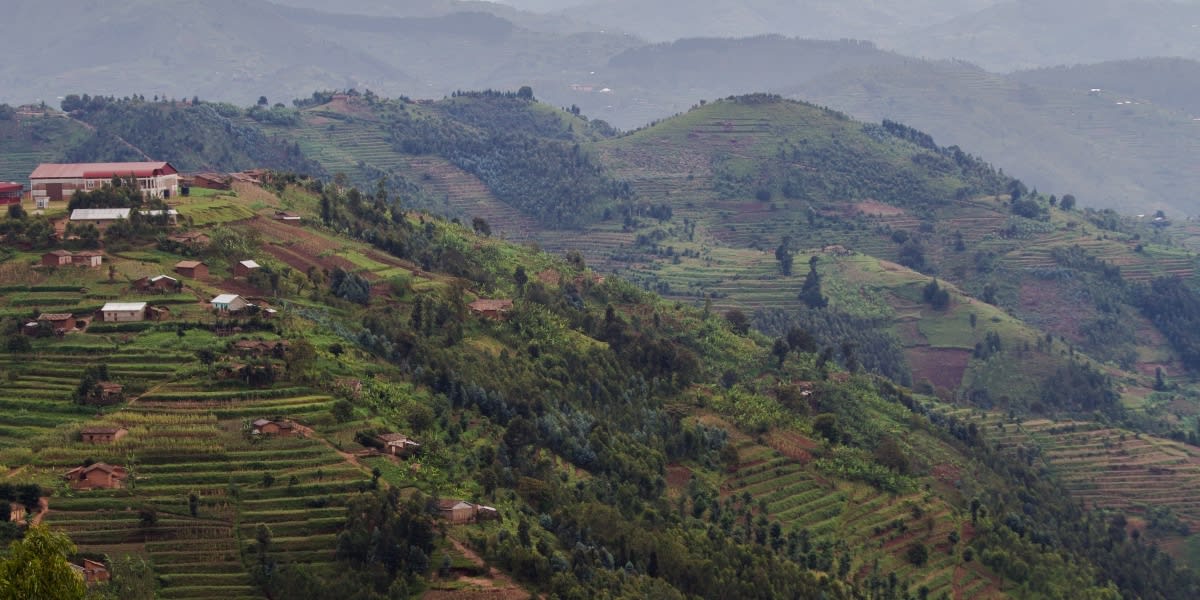
Land Rights: A Powerful Foundation for Climate Action and Justice
Land rights play a critical dual role in addressing both climate action and climate justice. Secure land tenure is not only key to enabling effective climate responses but also for ensuring justice for vulnerable and marginalized communities disproportionately affected by climate change.
Read the full discussion paper here.
The relationship between land rights, climate justice and climate action is complex and multifaceted. Globally, 2.5 billion people rely on community-managed territories, yet only ten percent of this land is legally recognised, despite these communities managing over 50 percent of the world’s land area (Pearce, 2016).
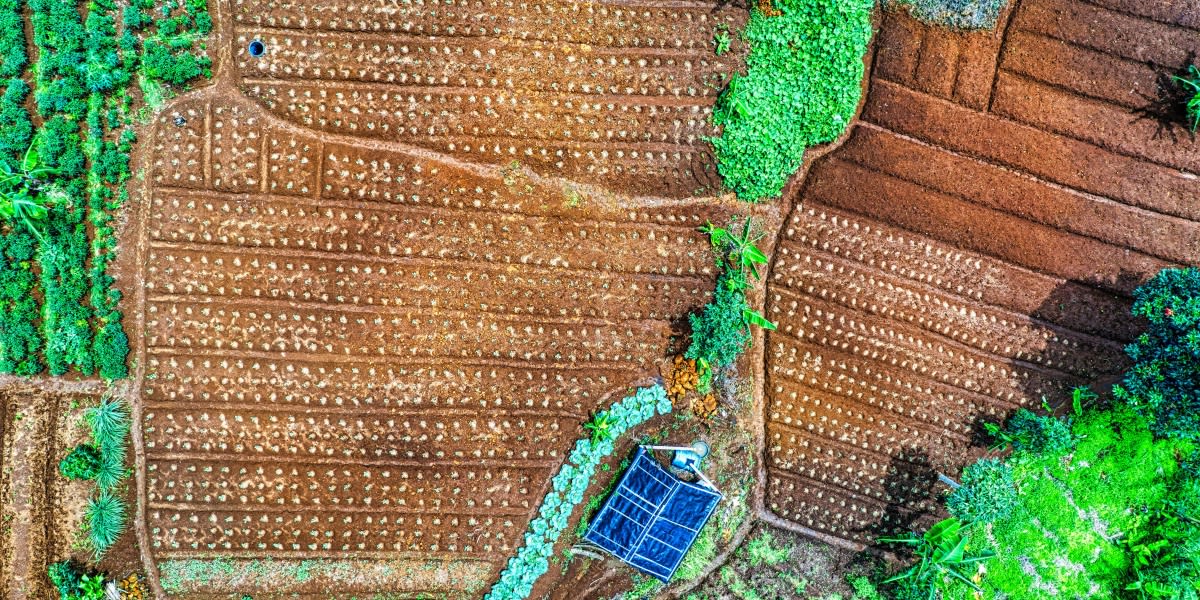
The Elephant in the Room. Land Governance Challenges of Climate Change Mitigation
underscores the pivotal role of land in mitigating climate change and stresses the connection between reducing emissions and safeguarding the rights of communities. While industrialised countries acknowledge their responsibility to increase emissions reductions, the effects of mitigation and adaptation on land use affect millions of people, particularly in the Global South. Delivering on all governments’ commitments to land-carbon dioxide removal (CDR) would encompass 1.2 billion hectares of land, triggering significant and large-scale transformations of land use, including afforestation initiatives, which though crucial for carbon offsetting are criticized for displacing communities.
The success of climate action depends on effective governance more than on any other factor. This article argues that while climate action may affect land rights, good governance can facilitate just and equitable transitions and socio-economic opportunities. Case studies from the Democratic Republic of Congo and Colombia illustrate the delicate balance that must be struck between environmental protection and governance, emphasizing the need for holistic strategies that safeguard both ecosystems and the rights of indigenous and rural communities.
Read the full report here.
633 million hectares, an area about twice the size of India, would be used for multiple purposes or undergo changes in land use and transition from existing practices such as agriculture or grazing to forestry.
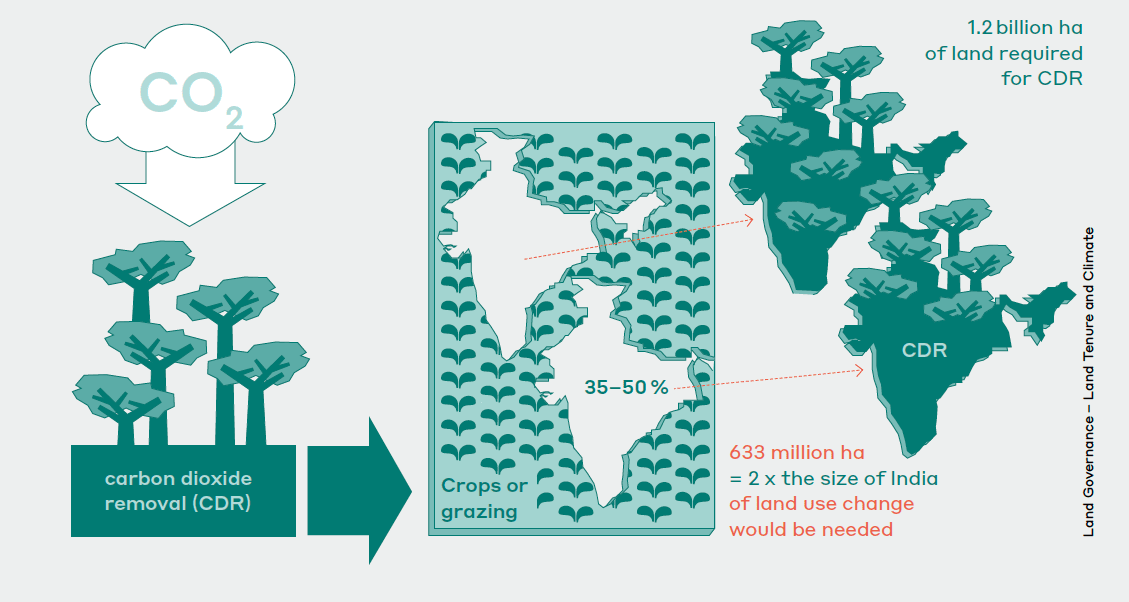
Haki Ardhi land rights reporting tool. Climate justice at hand.
To advance land rights and ensure a climate-just future, TMG Research, Rainforest Foundation UK and Kenya Land Alliance, as well as community-based organizations Shibuye Community Health Workers, Sauti ya Wanawake, and Taita Taveta Human Rights Watch, developed and piloted Haki Ardhi – a powerful new digital tool that fosters bottom-up monitoring and reporting of land rights violations.
Our findings on women’s land rights violations speak to the power of placing justice in the hands of communities and local organizations to enhance local legal redress mechanisms and strengthen government accountability. Our work so far reinforces the importance of joining forces with well-established community-based organizations, who serve as the cornerstone of our work with women whose rights have been violated.
Read the info brief here.
While women are heralded as vital land stewards that feed their communities and nourish ecosystems, their right to exercise control and decision-making power over the land they depend on for agriculture and food security is systematically eroded.
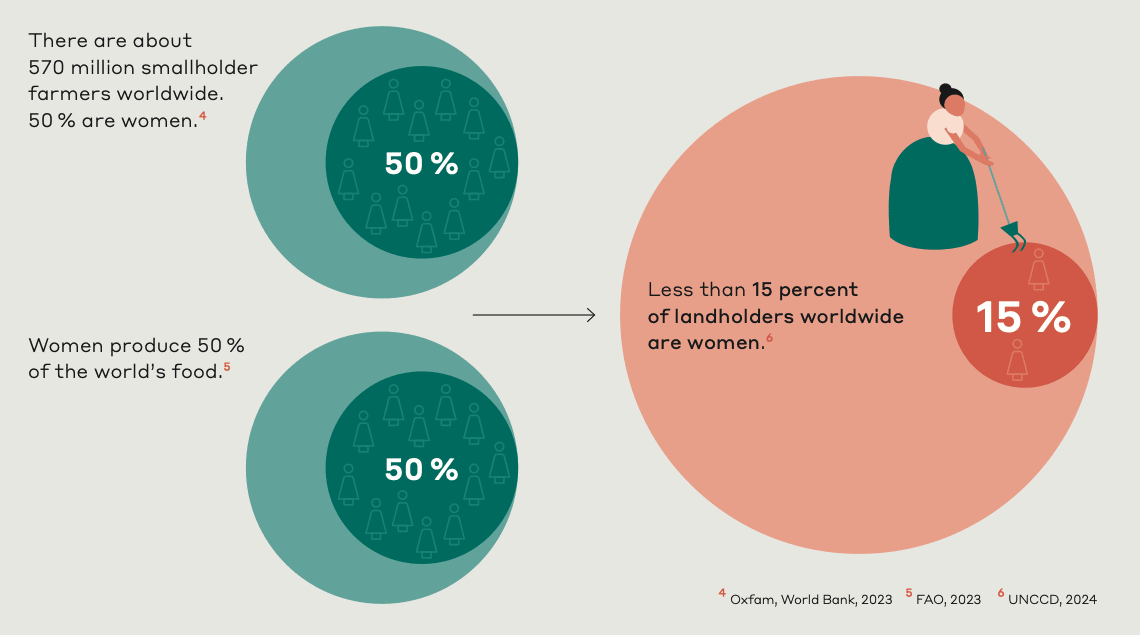
Rights4Land: towards an agenda for just land governance
TMG Research launched the Rights4Land platform to promote a human rights-based approach to land governance that treats land tenure as an inherent feature.
Experiences in Malawi, Ethiopia and Kenya and ongoing work in Sierra Leone testify to the added value of the Rights4Land platform. Connecting human rights and land rights provides a strong narrative and legal back-up to inform advocacy, litigation, policy improvements and strengthen accountability at local and national levels.
Read the full report here.
»The Navigator has been a real eye-opener for me; it shows how many internationally recognised and accepted standards for land governance there are that we can use to put pressure on our government. The tool makes us question whether we have done enough and to what extent our policies meet human rights standards. It also provides us with a narrative for advocacy and legitimises our messages.« Coordinator of the National Land Coalition Malawi
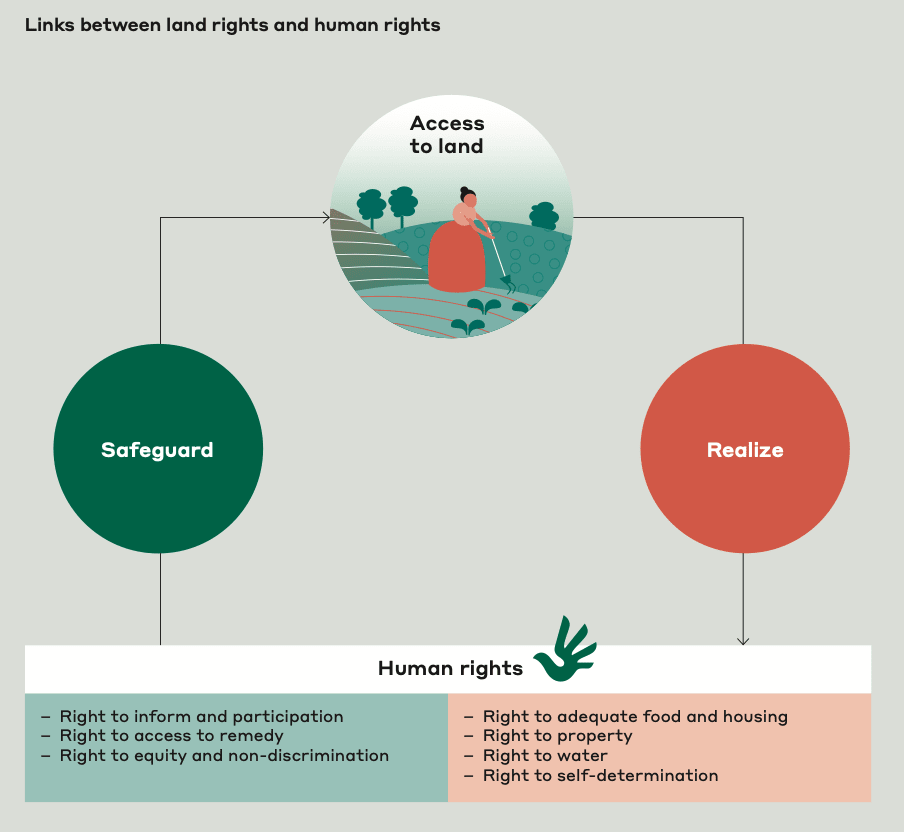

Rights4Land tools revamped: accessible, comprehensive, and localized


